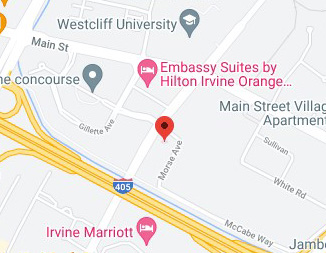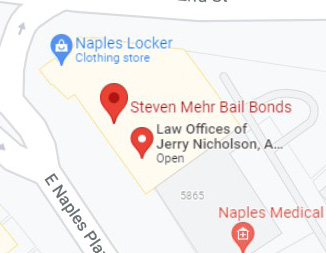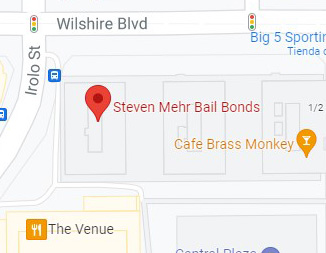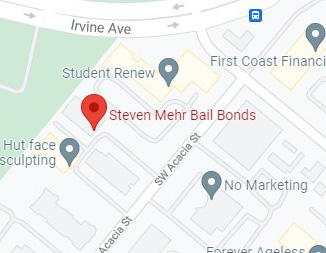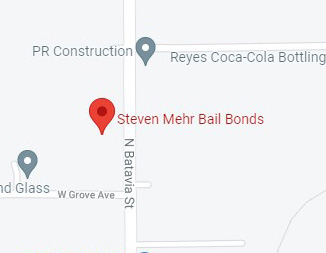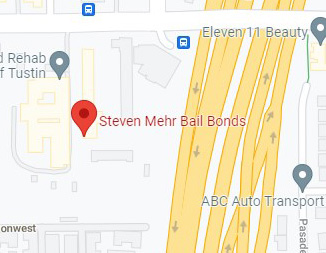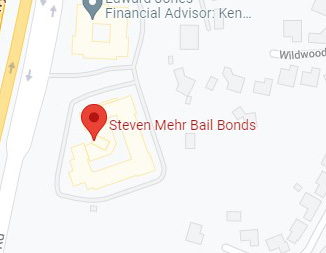Remaining in jail is not a pleasant experience, especially as you await trial. Judges will issue bail terms or the release of a defendant before their trial. In most situations, the bail amount is often high for the defendant to pay from their resources. In such situations, Bail bond agents are the solution. They will pay your bail and, in turn, secure your release. You can, therefore, take care of your children, go to work and prepare for your trial.
Do not remain in jail due to the lack of funds to secure your bail. Partner with Carson bail bond agents at Steven Mehr Bail Bonds. Let us secure your freedom as you await trial.
What is a Bail Bond
Upon arrest, suspected criminal offenders are presented in court, where their charges are read, and a trial date is set. Defense attorneys then request the courts to release their clients on bail pending their trial date. Judges then exercise discretion when setting the bail amount upon reviewing specific circumstances, including the crime you are charged with, the possibility of you being a flight risk, and any convictions on your record.
Bail serves as a surety you will attend the trial. Once you pay the sum, you avoid jail time before your trial date.
Bonds and bail are often used interchangeably but are different. Bonds offset the bail amounts on the defendant’s behalf by bail bond agents.
Some mistake bails for fines. Both serve different purposes. Convictions result in fines as punishment for the crime. Bails, as already described, secure a defendant’s freedom.
How Bail Bonds Work
Upon arrest in Carson, the police officers will book in jail. During booking, officers:
- Record your personal information — Of interest is your name, date of birth, and physical characteristics.
- Detail the alleged crime based on the arrest
- Take your photographs and fingerprints to be included in the database
- Run a background check to determine your criminal history or the presence of any outstanding warrants
- Search and confiscate any personal belongings on your person including, a wallet or purse, keys, phone, or rings. Your belongings will be held and returned upon your release.
- Place you in a holding cell in the police station or jail.
Minor offenders are usually let go after signing a written citation committing themselves to show up on the set court date. Those facing charges of severe offenses go through the bail process.
Once booked, you will be presented in court for arraignment. At the arraignment, the judge will formally read out your charges. You then will be offered the opportunity to secure your own release through bail. If you cannot afford to pay the amount requested, turn to a Carson bail bond agent.
You’ll have to part with 10% of the bail amount upfront payable to the bail bonds agent. The amount is a non-refundable fee for their services. Additionally, the bail bond agent will ask for security for the amount they paid for the bail. This is where a guarantor or an indemnitor comes in. These are people willing to be held accountable for you to attend court proceedings without fail. Guarantors offer assets like houses or cars as collateral.
If you honor your court dates, the court will refund the bail bond agent the sum they offered for your release. However, your bail will be forfeited if you fail to show up. Therefore, you will owe the full bail amount to the bail bondsman. They then can repossess the security in the contract to recover the sum.
Bail Schedules
Bail schedules outline the bail amounts against specific offenses and vary depending on the jurisdiction and the type of offense.
Misdemeanor offenses have bail values eight times lower than bail sums issued for felony offenses.
Types of Bail Bonds
Every case presents a unique set of circumstances, and judges consider the circumstances to determine the bail type and amount. The crime you allegedly committed, your financial assets, and your citizenship status is some aspects that inform the type of bail bonds to be issued.
Here’s a look at the common bonds.
Cash Bond
Accused persons pay for their bail in cash. Some courts may allow credit card payments. Cash bails are more common when an accused is considered a flight risk or a danger to the public. The amounts are set high enough, and thus most accused individuals end up remaining in custody until their court date.
If you pay the bail sum and fail to appear in court at the designated time, you will forfeit your bail. A judge will then issue a warrant for your arrest. If you attend all your hearings, the court refunds the bail sum after the conclusion of your case.
Property Bond
Property bonds utilize possessions like houses, cars, or other properties to secure bail. The alleged offender or their loved ones will then deposit titles of their properties with the court, and the court will then lay claim on the property. Failure to attend court hearings compels the court to possess the assets to cover the cost of bail.
It is advisable only to use your property to secure your freedom as the last result. Losing your property leads to financial ruin that proves challenging to recover from even after a trial’s end.
Surety Bond
A surety bond is another term for bail bonds. These bonds are perfect alternatives for accused individuals who cannot raise the sums set by the courts. This is where bail bond agents step in. Your loved ones will call a bail bond agent, an employee of the surety company, the bail bonds company.
The agent then appears in court and pledges to pay the entire amount. It, therefore, means that your failure to attend court hearings results in the loss of the sum the Carson bail bond agent deposited to the court for your release.
Failing to honor court dates adversely affects both you and your guarantor. Your guarantor will have to pay back the sum in the bail bond contract. If they cannot pay, they will forfeit their assets attached to the bail contract. The bail bond company will then sell off the asset to recover the value of the bond. Since skipping bail results in an arrest warrant, you will have bounty hunters tracking you for a percentage of the bail amount for turning you in to the authorities.
Immigration Bond
Immigration bonds are for non-citizens under the custody of ICE, the Federal Immigration and Customs Enforcement Department. Immigration bonds are similar to surety bonds. You’ll have to get in touch with a Carson bail bondsman to secure your release. Once released, you must attend all immigration hearings. Additionally, you must report to ICE if it is determined that you will be deported. Failure to meet the conditions of your release, as with other bonds, results in a warrant for your arrest.
Immigration bonds are expensive. As an accused, you are a potential flight risk. Thus the bonds are high to mitigate the bail bonds agents in Carson against losses should you take off.
Unsecured Bond
Unsecured bonds require no security or lien on the property. Additionally, no money is paid upfront to secure your freedom. You will only be required to sign an agreement stating that you will pay the bail bond amount if you fail to appear in court at the appointed date.
Federal Bond
Federal bonds secure the freedom of individuals facing federal charges as they await trial. These bonds are similar to surety bonds. However, they are more expensive and require the insurance companies’ backing because crimes at the federal level are more serious.
Federal bond rates range from 12% to 20%, depending on the severity of the charges.
Alternatives to a Bail Bond
Bail hearings offer defendants who are unable to pay bail to request a bail reduction or to eliminate the bail and release you by your own recognizance.
In modifying or eliminating bail, the judge considers critical aspects, including:
- Your financial position determines your ability to pay
- Any priors in your record
- Public safety
- Probably of you showing up for your court dates
- The severity of the alleged offense — The judge considers threats to the victims, injuries the victim sustained, and whether the case involves drug or weapon use. If you face severe or violent felony charges, the courts will not reduce your bail below the scheduled amount.
However, the judge may make an exception if the following are true:
- You showed up for all your court dates
- You have not committed any new offenses
- New evidence has changed the circumstances of your case
Posting bail does not automatically mean freedom. A judge can exercise his/her discretion to have you remain in custody during your trial. If you are in custody because you haven’t posted bail, you are entitled to a bail review hearing five days after the date your bail was set.
If the alleged offense falls in the category of a serious or violent felony, certain domestic violence crimes, or specific violations of protective orders, your Carson attorney will have to provide a written notice to the prosecutor. The notice details your intention to request a bail reduction at the bail hearing. Further, your attorney should submit the notice two days before the hearing.
While judges can reduce bails, they too can raise bail sums. Judges decide based on the concerns raised by prosecutors, the court was unaware of, like a parole or probation violation. To avoid this situation, you should post bail as soon as possible without initiating a hearing. Doing so reduces the risk of the judge finding out about these material facts before they set bail.
It is worth noting unless there is clear evidence to the contrary, high bail amounts do not always mean they are inherently excessive or that a judge abused their discretion. Bails are not intended to punish.
However, there are cases of judges setting excessively high bail terms. If so, your attorney will help you address this issue.
Instead of posting bail, you can request the judge to release you on your own recognizance. You are entitled to your own recognizance or O.R. release unless your release compromises public safety. Further, you will be denied release if it is clear that you will not reasonably honor your court dates.
Qualities a Reliable Bailbondsman in Carson Should Have
Identifying a bail bonds agent can be difficult, especially if it is your first experience searching for one. Reliable agencies possess certain qualities, and identifying these characteristics will prove helpful in choosing the right Carson bail agent.
24/7 Services
Arrests are not limited to specific operating hours. You, therefore, need an agent who operates 24/7. You then can engage with them at the time you or a loved one is arrested.
Low Bond Rates
Find out the bail bond charges from various agencies and compare the prices before selecting one. It is also worth noting that not all agencies that claim to offer low rates do. Avoid signing any paperwork before being satisfied that indeed your choice of a Carson bail agent offers low bond rates.
Flexible Payment Options
An arrest is unexpected. As such, bail payments are also unplanned. Both situations require abrupt spending that can prove difficult. You, therefore, need bail bond agents who offer several payment methods. Additionally, the terms should be flexible enough to make payments with ease.
Positive Review
Reviews are easy to come by. Check a bondsman website for client reviews. Alternatively, referrals from friends, colleagues, or attorneys too are options worth exploring.
Carson Jail and Courthouse Information
Carson Jail
Compton Courthouse
Find an Experienced Carson Bail Bonds Near Me
An arrest can be devastating. Add the financial implication, and it is easy to become frustrated and worried about the outcome. Hiring a Carson bail bond agent alleviates these challenges by offering you an opportunity to proceed with your case away from jail. Steven Mehr Bail Bonds have a team ready to secure your release as soon as possible. Give us a call at 800-834-8522.





